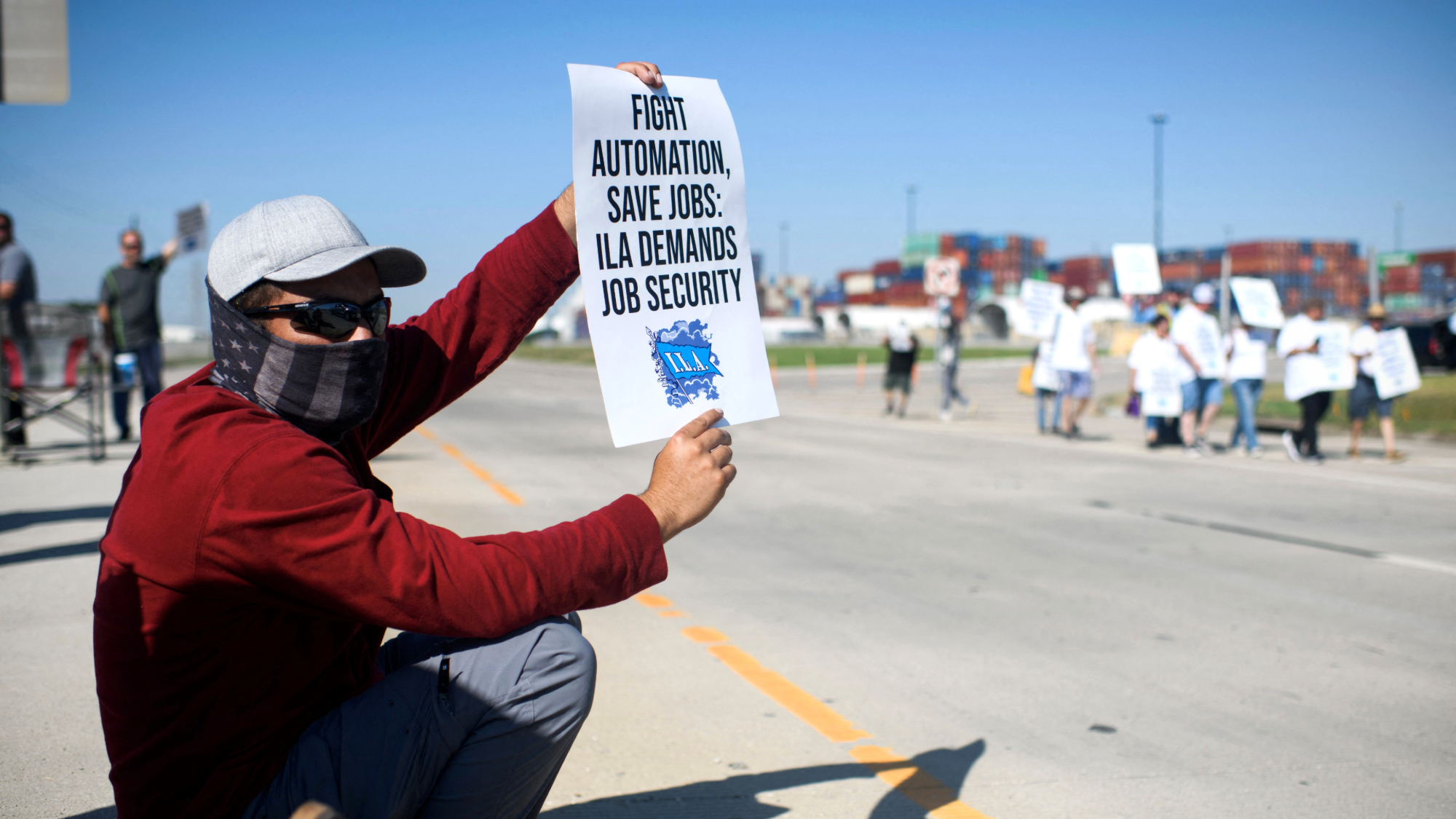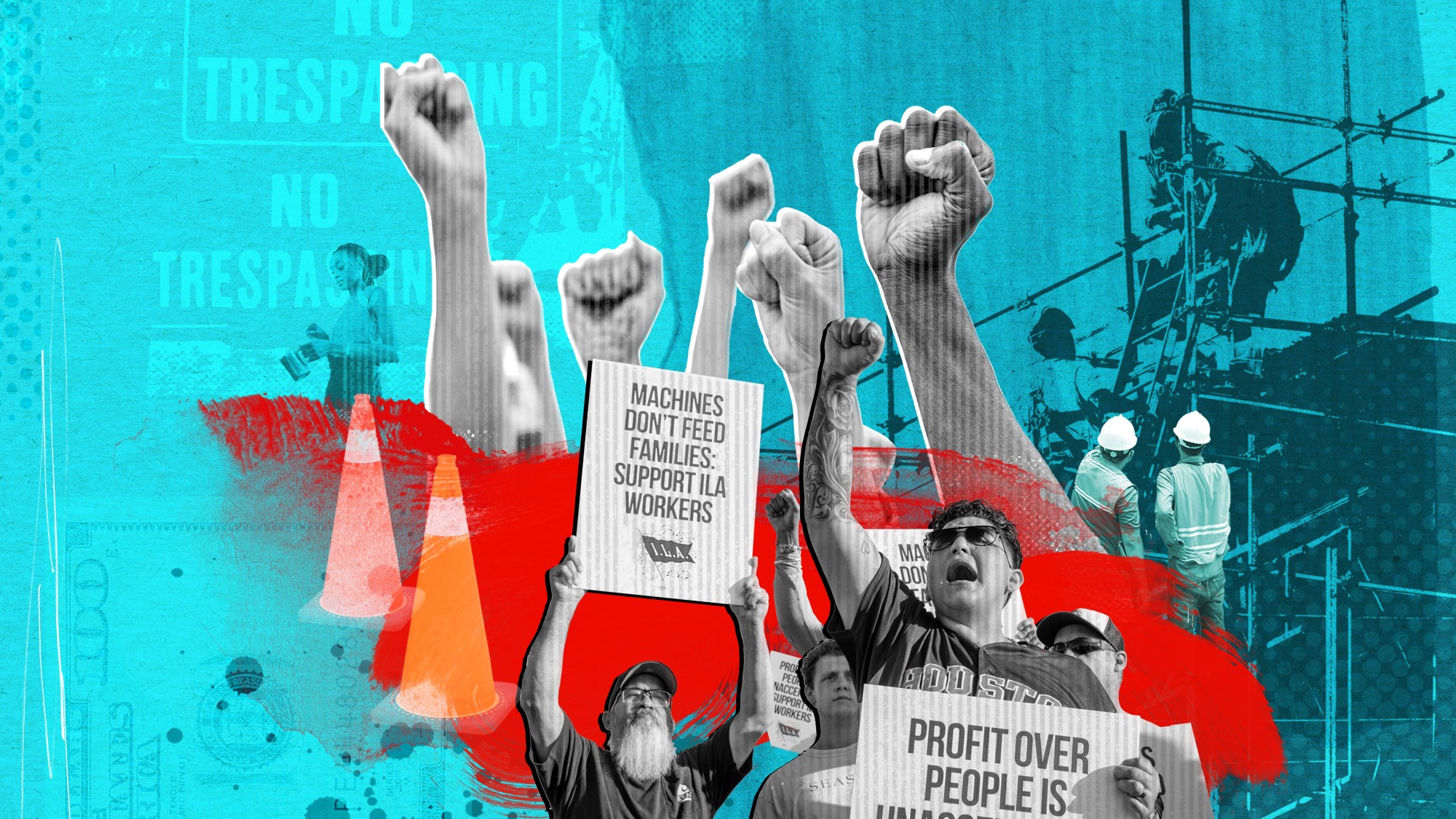'Desk-bombing' is not a crime
And more of the week's best financial insight

A free daily email with the biggest news stories of the day – and the best features from TheWeek.com
You are now subscribed
Your newsletter sign-up was successful
Here are three of the week's top pieces of financial insight, gathered from around the web:
'Desk-bombing' is not a crime
How did stopping by a colleague's desk with a question get labeled as a terrible workplace faux pas? asked Pilita Clark in the Financial Times. I heard recently about a man who had been "vainly emailing a woman he worked with to get something approved." A colleague said, "Why don't you just go over and ask her to approve it?" The aghast man replied, "I'm not going to just go and desk-bomb her." But "since when has something as innocuous as asking someone an unsolicited question at work become so offensive?" In the office, there seems to be a growing "intolerance of interruption." Fine, people wearing headphones can be left alone. Otherwise, "all are more or less fair bombing game." It's way more efficient than emailing, "and usually more enjoyable."
The Week
Escape your echo chamber. Get the facts behind the news, plus analysis from multiple perspectives.

Sign up for The Week's Free Newsletters
From our morning news briefing to a weekly Good News Newsletter, get the best of The Week delivered directly to your inbox.
From our morning news briefing to a weekly Good News Newsletter, get the best of The Week delivered directly to your inbox.
Reining in job-training charges
Lawmakers and regulators are exploring ways to thwart the rise in training-repayment agreements, said Diane Bartz in Reuters. According to the Cornell Survey Research Institute, "nearly 10 percent of American workers surveyed in 2020" were subject to a provision by their employer charging them for training if they quit their jobs. Such agreements, which critics have dubbed "training-repayment agreement provisions" or TRAPs, "have been around in a small way since the 1980s, primarily in high-wage positions where workers received valuable training." But lately, TRAPs have become more widespread in industries like health care, saddling workers with employer-driven debt. Nurses say they are often not told about the repayment requirement before they start, and the "instruction often repeats what they learned in school."
Watch out for foreign ATM fees
Pay attention to the ATM machine you're using when traveling overseas, said Christopher Elliott in The Washington Post. In Athens this summer, my brother withdrew 1,000 euros from an ATM and was charged $1,219. That's because the company, Euronet, charged "a 13 percent markup from the going exchange rate." Such hidden surcharges are not uncommon, and come on top of your bank's charges, which can run up to $5 plus 3 percent of the withdrawal (you can ask your bank to waive those). Stick to bank ATMs, or try one of the multicurrency debit cards offered by apps like Revolut or Wise, which will automatically "convert your money at the more favorable interbank rate."
A free daily email with the biggest news stories of the day – and the best features from TheWeek.com
This article was first published in the latest issue of The Week magazine. If you want to read more like it, you can try six risk-free issues of the magazine here.
-
 Quiz of The Week: 14 – 20 February
Quiz of The Week: 14 – 20 FebruaryQuiz Have you been paying attention to The Week’s news?
-
 The Week Unwrapped: Do the Freemasons have too much sway in the police force?
The Week Unwrapped: Do the Freemasons have too much sway in the police force?Podcast Plus, what does the growing popularity of prediction markets mean for the future? And why are UK film and TV workers struggling?
-
 Properties of the week: pretty thatched cottages
Properties of the week: pretty thatched cottagesThe Week Recommends Featuring homes in West Sussex, Dorset and Suffolk
-
 Ski town strikers fight rising cost of living
Ski town strikers fight rising cost of livingThe Explainer Telluride is the latest ski resort experiencing a patroller strike
-
 What will the US economy look like in 2026?
What will the US economy look like in 2026?Today’s Big Question Wall Street is bullish, but uncertain
-
 Starbucks workers are planning their ‘biggest strike’ ever
Starbucks workers are planning their ‘biggest strike’ everThe Explainer The union said 92% of its members voted to strike
-
 Labor: Federal unions struggle to survive Trump
Labor: Federal unions struggle to survive TrumpFeature Trump moves to strip union rights from federal workers
-
 US port strike averted with tentative labor deal
US port strike averted with tentative labor dealSpeed Read The strike could have shut down major ports from Texas to Maine
-
 Boeing machinists reject deal, continue strike
Boeing machinists reject deal, continue strikeSpeed Read The rejection came the same day Boeing reported a $6.2 billion quarterly loss
-
 The pros and cons of globalization
The pros and cons of globalizationPros and Cons Globalization can promote economic prosperity but also be exploitative
-
 The pros and cons of labor unions
The pros and cons of labor unionsPros and Cons Companies throughout the country continue to push for unionization